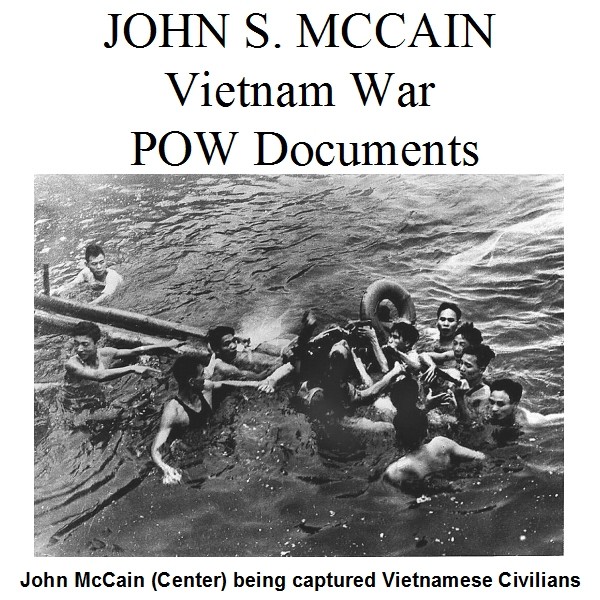
Description
McCain’s Vietnam War POW Experience: Timeline and Key Figures
Detailed Timeline of Events
- October 26, 1967: John McCain, a U.S. Navy pilot, is on his twenty-third mission over North Vietnam, participating in an air raid on the Hanoi thermal power plant.
- October 26, 1967: McCain’s A-4E Skyhawk is hit by a Russian-made surface-to-air missile. He ejects and lands badly injured in Truc Bach Lake in Hanoi.
- October 26, 1967: McCain is dragged from the lake by civilians and beaten along the shore. He is taken prisoner by the North Vietnamese.
- Late October/Early November 1967: McCain is taken to Hoa Lo Prison, also known as the “Hanoi Hilton.” He is denied medical treatment initially because his captors believe his wounds are fatal.
- Shortly After Capture (late 1967): McCain’s captors learn that his father is Admiral McCain. Recognizing his potential propaganda value, they begin to provide him with medical treatment.
- Late 1967 – Early 1968: McCain is accorded relatively privileged status due to his father’s rank, but still endures bad conditions, abusive guards, poor food, and dysentery. He exhibits insolence towards the guards, knowing his fellow POWs do not have the same leeway.
- Early 1968: McCain is offered early release by his captors, which he perceives as a propaganda stunt. He refuses, insisting that POWs held longer than him should be released first.
- March 1968: Following his refusal of early release, McCain’s treatment worsens. He is placed in solitary confinement, where he will remain for two years.
- August 1968: A program of severe torture begins on McCain. He is subjected to rope bindings and repeated beatings every two hours for four days.
- During Torture (August 1968): McCain attempts suicide twice but is caught by guards and placed under suicide watch. His injuries leave him permanently unable to raise his arms above his head. He signs a forced confession.
- Post-August 1968: McCain resists further attempts to be used for North Vietnamese propaganda. As a result, a regimen of beatings two or three times a week is established.
- Latter Half of 1969 (After Ho Chi Minh’s Death): According to McCain, the North Vietnamese treatment of American POWs becomes less inhumane, and express torture ends.
- January 1970: John McCain is interviewed by Spanish psychiatrist Fernando Barral for Radio Havana. McCain discusses Lyndon Johnson’s handling of the war and his father’s role. Barral provides a harsh “psychological” assessment of McCain.
- March 14, 1973: John McCain is released from captivity in North Vietnam after 5 1/2 years as a prisoner of war.
- Post-March 1973: McCain returns home on crutches and begins years of physical rehabilitation.
- Later (Post-Release): McCain regains flight status.
- 1981: John McCain retires from the U.S. Navy as a Captain after a distinguished career.
- April 8, 1974: John S. McCain, then a Commander in the U.S. Navy at the National War College, completes his individual research project, “The Code of Conduct and the Vietnam War,” reviewing the Code of Conduct in the context of the POW experience and recommending changes.
- 2000: John McCain publishes his book, “Faith of My Fathers,” in which he recounts his experiences as a POW and refers to his interview with Fernando Barral.
- January 29, 2003: John McCain gives an oral history interview as part of the Veterans History Project, discussing his experiences as a Navy pilot, his capture, his refusal of early release based on the Code of Conduct, and his readjustment after returning home. He also makes predictions about the upcoming war in Iraq.
- September 1, 2018: Voice of America publishes an article featuring an interview with Orson Swindle, a fellow POW who was imprisoned with John McCain, remembering him in Vietnam.
Cast of Characters and Brief Bios
- John S. McCain III: A U.S. Navy pilot who was shot down over North Vietnam on October 26, 1967, and held as a prisoner of war for 5 1/2 years. He endured harsh treatment, including torture and solitary confinement. He refused early release based on the Code of Conduct. After his release, he continued his Navy career, eventually retiring as a Captain, and later became a prominent U.S. Senator.
- Admiral McCain (John S. McCain Jr., likely): John S. McCain III’s father, a high-ranking officer in the U.S. Navy. His status was recognized by the North Vietnamese and initially led to slightly better treatment for his son, hoping for propaganda opportunities.
- Ho Chi Minh: The Prime Minister and President of the Democratic Republic of Vietnam (North Vietnam). According to McCain, the treatment of American POWs became less inhumane after his death in the latter half of 1969.
- Bernard-Joseph Cabanes: A French journalist with AFP (Agence France-Presse) who conducted an interview with John McCain while he was a POW.
- Francois Chalais: A French TV reporter who wrote an article concerning American pilots held in North Vietnam, which included interviews with POWs, including McCain.
- Fernando Barral: A Spanish psychiatrist who interviewed John McCain for Radio Havana in January 1970. His interview focused on McCain’s views on the war and his father’s position, and Barral provided a critical psychological assessment of McCain. McCain later described him as a “Cuban propagandist masquerading as a psychiatrist and moonlighting as a journalist.”
- Orson Swindle: A fellow American pilot who was also a prisoner of war in North Vietnam and was imprisoned with John McCain. He shared his memories of McCain’s time as a POW in a 2018 Voice of America article.
- Lyndon B. Johnson: The President of the United States during the early part of John McCain’s captivity. McCain mentioned Johnson’s management of the war during his interview with Fernando Barral.
- Stuart I. Rochester: The author of the book “The Battle Behind Bars Navy and Marine POWs in the Vietnam War,” excerpts of which mention John McCain’s experiences.
John S. McCain Vietnam War POW Documents
350 pages of documents related to John S. McCain III and his time as a POW during the Vietnam War. Composed of CIA and Department of Defense files, a manuscript written by John McCain, audio of an oral history interview given by McCain, and other histories and photographs.
On October 26, 1967, John McCain was flying an A-4E Skyhawk on his twenty-third mission over North Vietnam. McCain was participating in an air raid on the Hanoi thermal power plant. This mission was his first encounter with the heavy air defenses deployed by the North Vietnamese in and around Hanoi. His plane was hit by a Russian made surface to air missile. McCain ejected and landed badly injured in Truc Bach Lake. He was dragged from the lake and beaten by civilians along the shore. Thus, began John McCain’s 5 1/2 years of captivity in North Vietnam.
He was taken to Hoa Lo Prison, also known as “Hanoi Hilton,” where his captors refused to give him medical treatment. He was interrogated and handled roughly. He was denied medical treatment because his captors determined his wounds were fatal. After his captors learned his father was Admiral McCain and he could be used for propaganda, he was given medical treatment. Early on, this son and grandson of high-ranking naval officers was accorded relatively privileged status. But this still meant bad conditions, hostile abusive guards, poor food, and frequent boats of dysentery
McCain perceived that he was not being treated as harshly as his fellow captives. This allowed McCain to be insolent to the guards because he knew other American POWs did not have the freedom to do so. Then he refused early release, which he says he saw as a public relations stunt by his captors, insisting that POWs held longer than him should be granted their freedom first. Thereafter, McCain was treated much more severely.
In March 1968, McCain was put into solitary confinement, where he would remain for two years. In August 1968, a program of severe torture began on McCain. He was subjected to rope bindings and repeated beatings every two hours for four days. In his book Faith of my Fathers (2000) McCain wrote that he attempted to commit suicide twice but was caught by guards. He was then put under suicide watch. His injuries left him permanently incapable of raising his arms above his head. He signed a forced confession during the torture. When he resisted further attempts to be used for North Vietnamese propaganda, a regiment of beatings two or three times a week was established. According to McCain, after the death of Ho Chi Minh, in the latter half of 1969, the North Vietnamese treatment of American POWs became less inhumane and the express torture ended. McCain was released on March 14, 1973. He returned home on crutches and began years of physical rehabilitation. McCain later regained flight status and commanded a Navy squadron before retiring from the Navy in 1981.
Sections in this collection Include:
John McCain Vietnam War POW CIA & Department of Defense Files
73 pages of CIA and Department of Defense documents and transcriptions of foreign broadcasts, from 1967 to 1973, relating to John McCain’s captivity in North Vietnam.
The 36 pages of original documents plus their transcripts in this set are intercept reports from the CIA’S Foreign Broadcast Information Service and the Message Center of the U.S. Department of Defense National Military Command Center. The Foreign Broadcast Information Service (FBIS) is an open source intelligence component of the CIA’s Directorate of Science and Technology that monitors, translates, and disseminates within the US Government openly available news and information from non-US media sources. The FBIS became known as the Open Source Center (OSC) in 2005.
The files date from October 11, 1967 to February 20, 1973.
Highlights in this set include:
The broadcasts translated and/or transcribed include: A Vietnam News Agency international broadcast of an interview with John McCain. Vietnam News Agency broadcasts directed to U.S. personnel in South Vietnam concerning the capture of McCain. Radio Moscow international broadcast concerning the reporting in North Vietnam of the shot down of McCain. A Paris based, AFP – Agence France- Presse, broadcast of an interview with John McCain, conducted by French journalist Bernard-Joseph Cabanes. Radio Moscow domestic Russian report on a Pravda Review article concerning the air defenses in Hanoi, featuring North Vietnamese interview content of McCain. An Article written by French TV reporter Francois Chalais concerning American pilots held in North Vietnam, includes interviews with American pilots, including McCain.
A January 1970 Radio Havana broadcast of an interview of John McCain by Spanish psychiatrist Fernando Barral. This interview received attention because McCain mentions Lyndon Johnson’s management of the war as president, and the status of his father, Admiral McCain in the chain of command. Barral concludes the piece with a harsh “psychological” assessment of McCain. Years later John McCain referred to the interview in his book, “Faith of My Fathers.” McCain refereed to Barral as “a Cuban propagandist masquerading as a psychiatrist and moonlighting as a journalist.”
John McCain Interrelated CIA Treatment of American POWs CIA Files
125 pages of selected CIA files dating from 1966 to 1971. The files concern the treatment of American POWs. The files cover: The exploitation of U.S. POWs for propaganda purposes. Experiences of American pilots captured in Vietnam. Intelligence on Hoa Lo Prison, also known as Hanoi Hilton. Lessons used in the indoctrination of American POWs. North Vietnamese policy toward American POWs. The Viet Cong practices involving the taking of POWs. The air raids that took place in and around Hanoi during the period of time of John McCain’s last sortie. The use of POWs for propaganda broadcasts. The Viet Cong prison system for Vietnamese under their detention.
“The Code of Conduct and the Vietnam War,” written by John S. McCain, Commander United States Navy
The 44-page report, “The Code of Conduct and the Vietnam War,” by John S. McCain, Commander United States Navy, an April 8, 1974, individual research project conducted by John S. McCain, Commander, United States Navy, at the National War College. The purpose of this paper was to review the Code of Conduct in the perspective of the Vietnam prisoner of war experience and to make recommendations for changes to the code itself and to the training and indoctrination of the members of the Armed Forces in the Code of Conduct.
Audio – John S. McCain Veterans History Project Oral History Interview
28 minutes of audio of an oral history interview of John McCain given on January 29, 2003.
Topics covered include:
Choosing to be a Navy pilot
Futility of the air war tactics during the Vietnam War
How he was taken prisoner
Refusing early release according to the Code of Conduct
Staying mentally alert while a prisoner
How his captors used news of the anti-war movement
Returning from captivity, readjustment
Ernest Hemingway, McCain’s life compared to “For Whom the Bell Tolls”
His predictions about the upcoming war in Iraq (2003)
John McCain Navy Citations
19 pages of U.S. Navy documents covering the Navy awards, medals and citations bestowed to John McCain.
The Battle Behind Bars Excerpts
10 pages of excerpts taken from the book “The Battle Behind Bars Navy and Marine POWs in the Vietnam War,” by Stuart I. Rochester, mentioning John McCain.
Voice of America Article: Former POWs Remember John McCain in Vietnam
September 1, 2018, Voice of America article by Marissa Melton, an interview with Orson Swindle, who was imprisoned with John McCain in Vietnam.
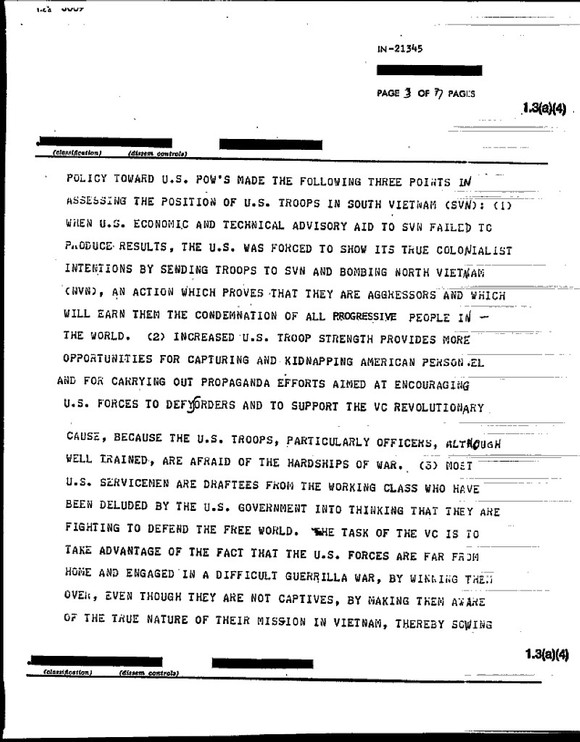
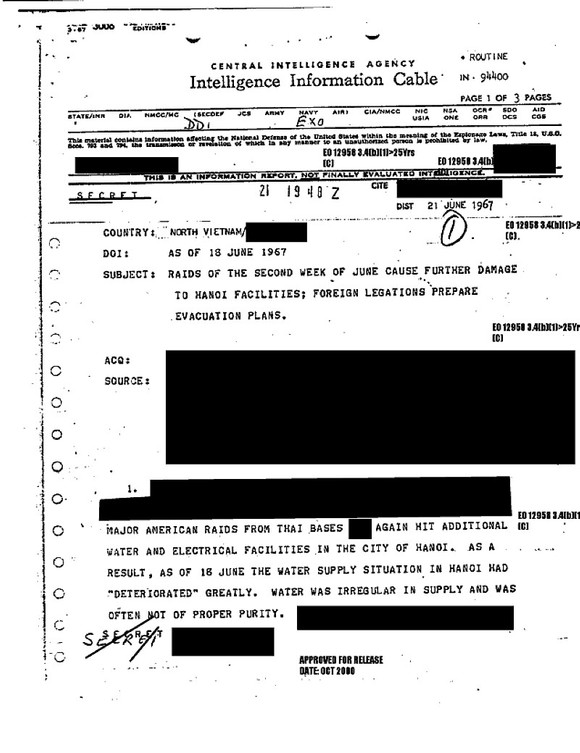
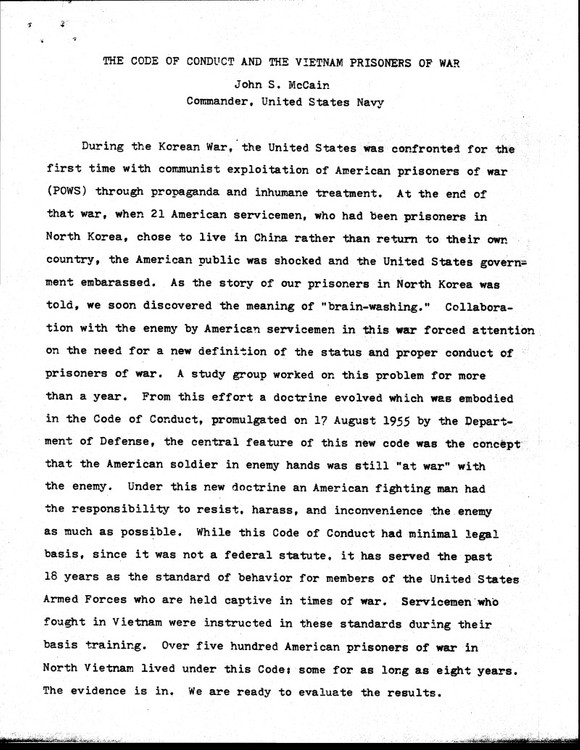
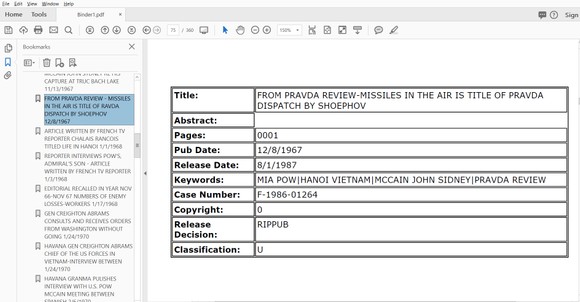

Related products
-
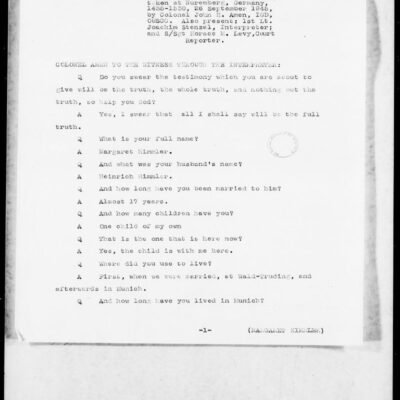
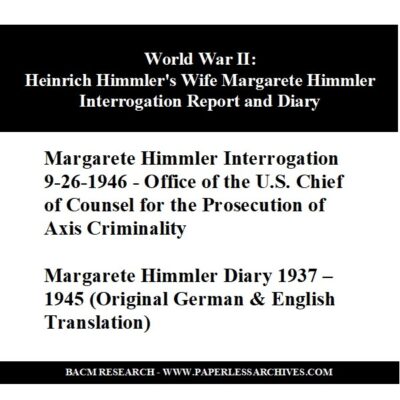
World War II: Interrogation Report and Diary of Margarete Himmler, Wife of Heinrich Himmler
$3.94 Add to Cart -
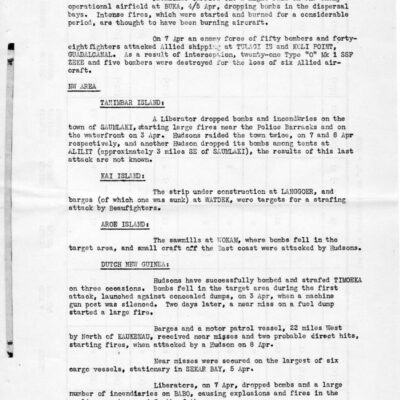
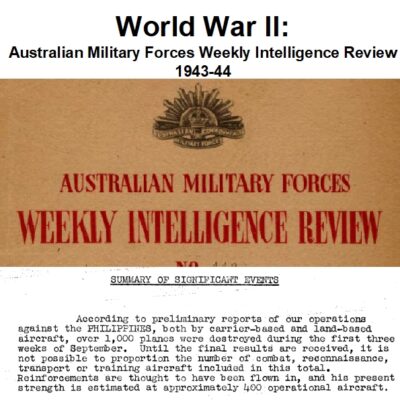
World War II: Australian Military Weekly Intelligence Reports 1943-44
$3.94 Add to Cart -
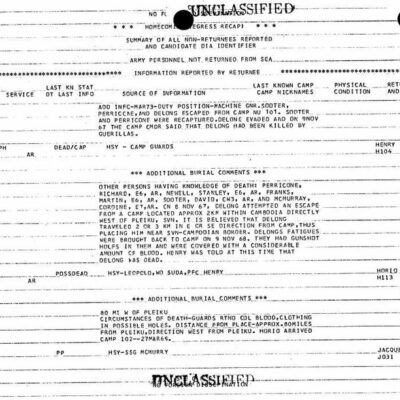
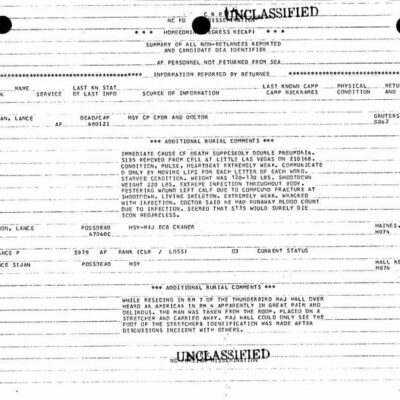
Vietnam War: POW/MIA Summary of All Reported Non-Returnees
$19.50 Add to Cart -
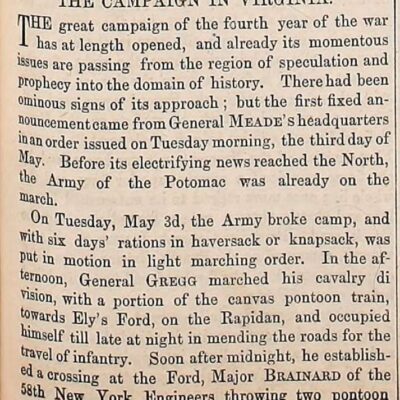
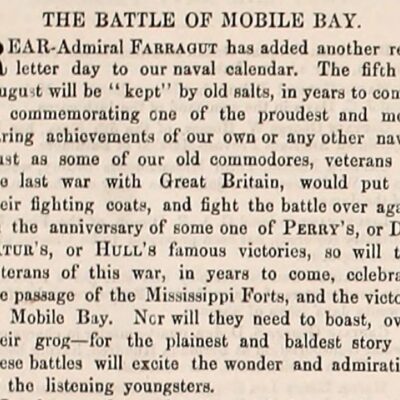
Civil War: Army Navy Journal & Gazette Volume 1 (1863 – 1864)
$19.50 Add to Cart